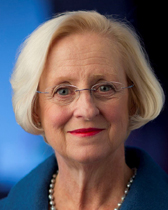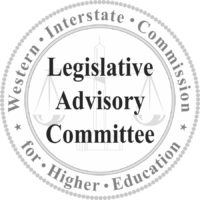Since 1952, Arizona has partnered with and benefited from WICHE through regional collaboration, resource-sharing, sound public policy, and innovation.
2024-25 ACADEMIC YEAR
by Arizona students through WICHE Student Access Programs
through WUE
through WRGP
through PSEP
WICHE’s Student Access Programs
WICHE operates three Student Access Programs that together saved nearly students $671 million in 2024-25. Each program supports students at each level of postsecondary education: undergraduate, graduate, and professional healthcare studies.
- Students gain from increased choice and savings.
- Schools gain by optimizing enrollments.
- States and Pacific Island members gain by growing the skills of those they serve and strengthening their workforce.
WRGP and WUE have enabled me to study architecture across diverse landscapes, from Idaho’s fire lookout towers to Arizona’s adobe thermal masses. By reducing financial obstacles, these programs have expanded my educational horizons and provided crucial opportunities for my academic and professional growth.
STEVEN, Washington resident, Architecture, University of Arizona
Improving Lives in Arizona
WICHE works collaboratively to expand educational access and excellence for all residents of the West. By promoting innovation, cooperation, resource sharing, and sound public policy, WICHE strengthens higher education’s contributions to the region’s social, economic, and civic life. Learn more about our mission.
WICHE brings together senior academic leaders to foster dialogue about issues facing individual institutions through its leadership and professional development networks.
WESTERN ALLIANCE OF COMMUNITY COLLEGE ACADEMIC LEADERS – 2-YEAR INSTITUTIONS
- Chandler-Gilbert Community College
- Eastern Arizona College
- Estrella Mountain Community College
- Gateway Community College
- Glendale Community College
- Maricopa Community Colleges
- Mesa Community College
- Paradise Valley Community College
- Phoenix College
- Rio Salado College
- Scottsdale Community College
- South Mountain Community College
Bettina Celias, Maricopa Community Colleges, is a member of the Alliance executive committee.
WESTERN ACADEMIC LEADERSHIP FORUM – 4-YEAR INSTITUTIONS
- University of Arizona
- Northern Arizona University
John Georgas, Northern Arizona University, is a member of the Forum executive committee.
WESTERN ACADEMIC LEADERSHIP ACADEMY is a yearlong professional development program for academic leaders aspiring to become chief academic officers in the WICHE region’s postsecondary sector. Two cohort members from Arizona institutions have participated in the Academy since its inception in 2015.
Arizona participates in the STATE AUTHORIZATION RECIPROCITY AGREEMENT (SARA) through WICHE. This voluntary agreement provides reciprocity for the state authorization of distance education. WICHE Commissioners have been strong advocates for protecting the state voice in important governance decisions affecting this agreement and staff continue to support participating states and improving student protections while bolstering access.
WICHE Behavioral Health Program (BHP) partners with the Arizona Health Care Cost Containment System to support fidelity reviews of four evidence-based practices (EPBs) in the MARICOPA COUNTY PUBLIC BEHAVIORAL HEALTH SYSTEM. These four evidence-based practices are also being reviewed across the balance of the state. WICHE BHP employs and supports the project lead and six fidelity reviewers.
WICHE BHP also collaborates with MERCY CARE ARIZONA to support the expansion of competence and evidence-based practices in trauma informed treatment.
TOGETHER WITH VETERANS (TWV) – RURAL VETERAN SUICIDE PREVENTION PROGRAM enlists rural Veterans and local partners to reduce Veteran suicide in their own community. Funded by the U.S. Department of Veterans Affairs and administered by the WICHE BHP, TWV provides individualized coaching, tools, training, technical assistance, and resources, supporting 16 total communities in the WICHE region, representing 11 Western states. The TWV program supports three communities in Arizona, serving nearly 750 Veterans.
RURAL COMMUNITIES OPIOID RESPONSE PROGRAM (RCORP) is a multiyear initiative supported by the Health Resources and Services Administration within the U.S. Department of Health and Human Services to identify treatment barriers and best practices for preventing and treating substance use disorder. In Arizona, RCORP supports three grantees.
Knocking at the College Door is the leading U.S. resource for projections of high school graduates. Released in December 2024, the newest edition is essential for postsecondary policymakers, planning and workforce efforts, and economic development.
DATA RESOURCES WICHE offers curated data and policy resources to support better-informed decision-making. WICHE’s research projects and collaborations cover postsecondary completion, health workforce development, behavioral health in postsecondary education, open educational resources (OER), state finance, prior learning assessment, and more:
- Tuition and Fees in the West includes tuition, fees, and enrollment data about 350+ public institutions in the West.
- Benchmarks: WICHE Region presents information on the West’s progress in improving access to, success in, and financing of higher education.
- Data on over 35 indicators in WICHE’s Regional Fact Book for Higher Education in the West.
DATA EXPERTS WICHE staff provide analysis on finance, financial aid, articulation and transfer, strategic planning, student demographics, and more, as well as host peer-to-peer calls of state, system, and institutional chief academic officers to identify areas of potential collaboration and resource sharing across the West.
Created by the WICE Commission in 1995, the LEGISLATIVE ADVISORY COMMITTEE (LAC) works to strengthen state-level postsecondary policymaking across the West. Members are legislators appointed by each state, territory, or freely associated state in the WICHE region; they meet annually to explore emerging policy issues and develop strategies for interstate collaboration.
CHIEF ACADEMIC OFFICERS NETWORK Staff from the Arizona Board of Regents also participate in regular collaborative calls with colleagues around the region.
WCET- The WICHE Cooperative for Education Technologies is the leader in the practice, policy, and advocacy of digital learning in higher education. Its growing membership includes institutions, higher education agencies and systems, nonprofit organizations, government agencies, and corporations in all U.S. states and several Canadian provinces. WCET members include:
- Arizona State University
- Coconino Community College
- Grand Canyon University
- Mesa Community College
- Midwestern University
- Northern Arizona University
- Pima Community College
- Prescott College
- Rio Salado College
- University of Arizona
- University of Phoenix
Melody Buckner, University of Arizona, serves on the WCET Steering Committee.
State Authorization Network (SAN) helps guide institutions through state regulations around online courses and programs. SAN members include:
- Arizona State University
- Grand Canyon University
- Midwestern University
- Northern Arizona University
- Prescott College
- Rio Salado College
- University of Phoenix
WICHE has convened the OERWest Network, which is part of a nationwide collaborative to scale the development and adoption of free course materials. Open educational resources (OER) have shown promise in improving student outcomes, particularly for poverty-affected students, for whom the high cost of textbooks can be a barrier to postsecondary success.
WICHE Commissioners
*indicates Executive Committee member
* Kathleen Goeppinger
President Emeritus, Midwestern University
Kathleen Goeppinger *
President Emeritus, Midwestern University
Kathleen H. Goeppinger, Ph.D., was president and chief executive officer of Midwestern University, an upper-division institution specializing in graduate-level health professions with two campuses (in Downers Grove, IL, and Glendale, AZ) enrolling 7,200 students, since 1995. She now serves as President Emeritus. Previously, Goeppinger had been a tenured professor and director at Loyola University Chicago for the Institute of Industrial Relations and the Center for Organizational Development. Prior to her time in academia, she worked in the private sector as a management consultant in healthcare and organizational development, and held corporate management roles in human resources and training. She has served Midwestern University since 1985, initially serving on the board of trustees and as chairman of the board. She is a member of numerous boards of directors in the Greater Phoenix and Downers Grove areas, and among other honors was named as one of the 25 most admired CEOs by the Phoenix Business Journal for her leadership, dedication to, and impact on higher education. She earned her bachelor’s degree from Carthage College in Kenosha, WI, and her master’s degree in industrial relations and doctorate in comparative international policy from Loyola University in Chicago.

Todd Haynie
President, Eastern Arizona College
Todd Haynie
President, Eastern Arizona College
President Todd Haynie’s roots run deep in the area Eastern Arizona College serves. He was born in Morenci, lived in Payson, graduated from Thatcher High School, and is a proud alumnus of Eastern Arizona College. Prior to becoming the 22nd president of EAC in 2018, President Haynie worked in private industry as a producer for the Educational Management Group and as a software engineer for IBM. He was recruited by EAC to become an admissions counselor and was later promoted to the College’s director of marketing and public relations.
Under his leadership, President Haynie has guided EAC through a comprehensive strategic planning process, launched new initiatives to strengthen programming in campus diversity, and transformed the College’s approach to developmental education. President Haynie’s guiding pillars for his administration are student success, community engagement, and financial responsibility. President Haynie was awarded a bachelor’s degree in film studies from Brigham Young University and a Master of Business Administration from Northern Arizona University.
He serves in many roles within the community but considers the role of husband and father his greatest responsibility.

Chad Sampson
Executive Director, Arizona Board of Regents
Chad Sampson
Executive Director, Arizona Board of Regents
The Arizona Board of Regents named Chad Sampson executive director in August 2024. He joined the board in 2010 as associate general counsel and transitioned to vice president of strategic planning before serving most recently as vice president of academic affairs and institutional analysis. A member of the State Bar of Arizona since 2002, Sampson has also worked in private law practice with Quarles & Brady and in the Arizona Attorney General’s Office as counsel for the Arizona Department of Education.
Sampson is active in the education community, serving on the WestEd Board of Directors. He has previously served on the board at Tempe Preparatory Academy, Center for After School Excellence and the Arizona State Board of Education’s Professional Practices Advisory Committee. He has also worked as an adjunct professor at Mesa Community College.
Sampson earned bachelor’s degrees in sociology and political science from the University of Utah and a juris doctorate from the University of Iowa College of Law. Sampson and his wife, Amber, have five children.

Legislative Advisory Committee
Vacancy
